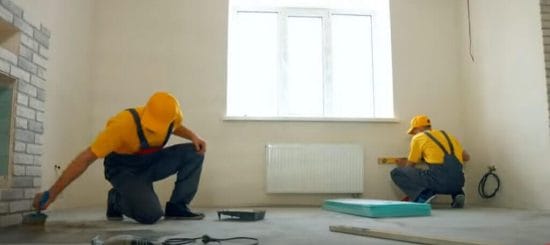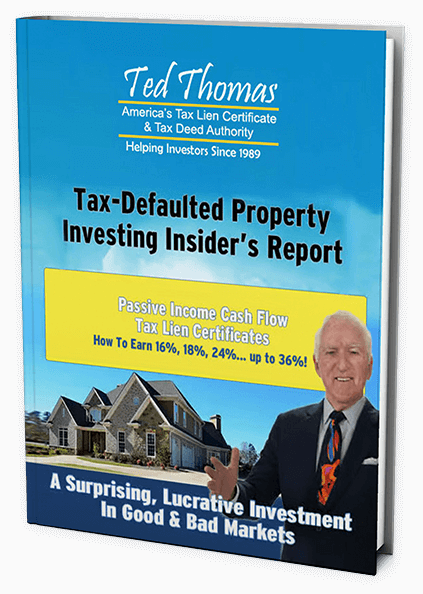Before you bid at a Tax Deed Auction you’ve got a bit of homework to do. Here’s what you need to know.
When venturing into the realm of property investment at tax deed auctions, understanding the nuances of property assessment is crucial. Location, arguably a cornerstone of real estate, plays a pivotal role in determining a property’s value and potential for appreciation. Remember, while a property can undergo numerous enhancements, its location is a constant that doesn’t change.
Evaluating the condition of a property is equally essential, especially in tax-defaulted transactions where properties are often in less than ideal states. With a strategic approach to assessing these critical aspects, you stand a better chance of securing a tax deed auction property that aligns with your investment goals and budget constraints.
Key Takeaways
- Recognize the immutable impact of a property’s location on its long-term value.
- Conduct thorough assessments to avoid underestimating a property’s repair and renovation needs.
- Calculate profit margins with diligence to ensure investment decisions are grounded in financial prudence.
Evaluating Tax Deed Property Location

When assessing tax deed auction properties, your primary concern should be the neighborhood. This is critical because you can enhance the property itself, but the surrounding area is beyond your control. Here’s what you need to consider:
- Commuting Habits: Determine if the location is conducive to commuting needs. Many people wish to earn a higher income in a city but reside in a peaceful rural area, commute options should be a factor in your decision.
- Rural vs. Urban Appeal: While some prefer the tranquility and lower cost of living of rural areas, many young professionals seek upward mobility and the excitement offered by city life. This choice impacts both living and working locations.
- Noise Levels: Properties near noisy areas, such as railroad tracks, can be a deterrent, as opposed to quieter locations where traffic is sparse.
- Business Viability: Consider the location of a commercial property’s suitability for business. For example, an ice cream stand on a rural road might not attract enough customers as opposed to one on a bustling city street.
- Neighborhood Quality: Always take into account the quality of the neighborhood. Aesthetic issues of a property can be fixed, but the reputation and characteristics of the neighborhood, including crime rates and school quality, are pivotal in your assessment.
Remember, your preferences may differ from others as location is highly subjective and personal.
Assessing Tax Defaulted Property Condition

When entering the tax defaulted property market, it’s crucial to assess the condition of the properties you’re considering bidding on at the tax deed auction. As you evaluate potential acquisitions, remember to walk the property and scrutinize the neighborhood, focusing on the key factors that could impact your decision-making process.
In the realm of tax-defaulted auctions, it’s crucial to differentiate between properties that can be salvaged and those that are beyond economic repair. Junk properties are those that the costs and efforts to rehabilitate greatly outweigh the potential return. These might have structural damages or require extensive repairs that are not justifiable, particularly if you lack the budget.
Property Condition Considerations
- Structural Integrity: Look at the core structural elements such as the foundations and load-bearing walls. Avoid properties with severe structural damage as they often entail high repair costs.
- Roofing: Examine the state of the roof. Due to the significant expense associated with roof repairs, rule out properties with substantial roofing issues unless you have a sufficient budget.
- Severe water damage: Mold or rot that compromises the building’s safety
Avoid bidding on tax deed auction properties that exhibit these issues, as they are unlikely to provide a suitable return on investment.
Assess the extent of repairs needed. Minor cosmetic fixes such as paint and cleaning and simple landscaping might be feasible and can substantially improve a property’s appeal. The goal is to find properties that require minimal to moderate updates that can fit your budget and schedule.
Looking for Tax Deed Properties Below Market Value

Seeking out properties priced below market value is a strategy that can lead to higher profit margins. Assessing such opportunities involves:
- Tax Assessed Value: Check county records to determine the tax assessed value to understand the property’s worth as recognized by the local government. Reference this against the minimum bid for potential margin.
- Comparables: Evaluate similar, recently sold properties to estimate the true market value.
- Appraisal Insights: Seek recent appraisals for a realistic understanding of the market.
- Long-term Trends: Look beyond current values to anticipate future market shifts.
Determine Your Margin
- Subtract the minimum bid from the property’s potential market value, as determined by your research on comparables, to assess your margin.
- Ensure there’s a substantial difference to account for repairs and other unforeseen expenses.
Avoid Overbidding
Staying within budget and avoiding overbidding is pivotal:
- Set a Limit: Before the auction, decide on your maximum bid and stick to it.
- Monitor Auction Dynamics: Be observant during the auction to avoid getting caught in bidding wars.
- Profit Calculation: Always have your projected profit in mind, ensuring the bid aligns with your financial goals. Remember, purchasing a property at or near market value reduces your profit margin and may not be favorable.
By adhering to these guidelines, you position yourself to make informed decisions, reducing the risk associated with tax deed auction property investments. Thorough property condition assessment and market value research are key to identifying opportunities that align with your capabilities and financial goals.
Keep in mind that when buying used and abused properties at auction, the goal is to acquire assets offering potential for value addition, allowing for selling at competitive rates while retaining a healthy profit margin. Aim to buy at bargain prices and sell below market to appeal to buyers.
By following these steps, you can make informed decisions at tax deed auctions and increase the likelihood of profitable investments.
Conclusion
Investing in real estate at tax deed auctions can be highly lucrative, but before bidding you need to know if the property is a deal or a dud. Always do your homework on the following:
- Property Location
- Neighborhood suitability cannot be altered.
- A property’s value is influenced significantly by its vicinity to desirable features like schools and the absence of nuisances like excessive noise.
- Property Condition
- Properties should be inspected for extensive damages that might exceed your budget for repairs.
- Focus on properties that need manageable improvements such as cleaning, painting, and minor fixes, and avoid properties that require costly renovations.
- Profit Margin Strategy
- Determine the property’s profit margin by researching tax assessed values and minimum bids ahead of auctions.
- Aim to purchase below market value to ensure room for profit even when selling at bargain prices.
- Be wary of bidding wars that might reduce the investment’s profitability.
If you’d like to know more about investing at tax lien and tax deed auctions, Ted Thomas provides full support and complete training with home study courses, Q&A webinars, live tutorials, workshops, web classes, personal coaching with certified coaches, and an interactive map and auction calendar research tool that allows you to visit each county online to find the details about upcoming auctions.
Want to earn massive income from bargain real estate investing? Would you like to buy mortgage-free properties for pennies on the dollar? Or earn double-digit interest rates secured by real estate? Then get started today with this Free Gift.




